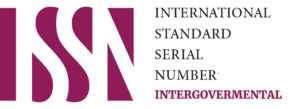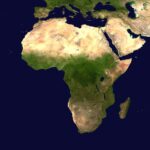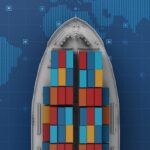ABSTRACT
The COVID-19 pandemic has occurred at a time when international cooperation is at its lowest post the world war II era. The persistence of the infection more than one year after it started causing havoc to human life makes it clear to the international community that without global cooperation not much can be achieved when it comes to dealing with global problems. Efforts by the international organizations to respond to the pandemic were thwarted by the non cooperation of their members. They nonetheless took action to combat the pandemic, albeit not enough.
1. INTRODUCTION
The world has experienced unprecedented challenges since the World Health Organization (WHO) declared a public health emergency of international concern in January 2020, necessitated by the rapid spread of a novel COVID-19 infection within Wuhan city, China which later spread to all corners of the globe. Besides triggering a health crisis, the pandemic has also caused an economic crisis whose impact the International Monetary Fund (IMF) has assessed worse than the Great Depression of the 1930s and the 2008 global financial crisis.[1] The United Nations (UN) equally views the pandemic as more than a health crisis pointing out that it is a socio-economic crisis, humanitarian crisis, security crisis, and a human rights crisis.[2] The magnitude of this pandemic one year later confirms that it’s a problem that requires joint efforts from the international community as no country has so far managed to contain it by itself. Jose E. Alvarez aptly summarizes this position when they state:
If we did not know it before, COVID-19 makes it abundantly clear that no state can expect to go it alone when it comes to pandemics. Even states that have been relatively successful to date with respect to COVID-19, like New Zealand, continue to depend on other states’ success. No state can expect to protect its population solely on the basis of measures at the border conducted with the assistance of an Interpol-styled organization. Continued progress on controlling the spread of COVID-19 and optimal care for those who are sick depends on global comprehensive research now organized by the WHO.[3]
In the past, states have responded to global crises through multilateral cooperation efforts mobilized vide international organizations. Indeed, the WHO is the international body mandated by 194 states to manage global health crises. For economic emergencies, there is a myriad of international organizations such as the International Monetary Fund (IMF), the World Bank (WB), the Organization for Economic Cooperation and Development (OECD) amongst others. This paper reflects on the efforts undertaken by international organizations to curb the spread of the COVID-19 coronavirus at the global level and the challenges faced. Given the limited scope of the assignment, it would, however, not be possible to look at the response by the many international organizations formed over the years, which are in their thousands; hence the study concentrates on four prominent global organizations, the WHO, the UN, the WB, and the IMF.
2. THE RESPONSE BY INTERNATIONAL
ORGANIZATIONS TO THE PANDEMIC
The COVID-19 pandemic has struck the world at a time when international cooperation is waning, as evidenced by recent events such as BREXIT, the rising of nationalistic leaders like the former USA President Donald Trump, the revulsion against migration, and the withdrawal of the USA from international agreements and UN bodies.[4] Indeed, most countries’ immediate reaction at the onset of the pandemic was to close their national borders and focus inwards to address their populations’ health and economic challenges.[5] Initial attempts by the UN Security Council (UNSC) to address the pandemic were thwarted by the war of words between the USA and China, with the USA insisting on referring to COVID-19 as the Chinese virus and China propagating allegations that the USA was responsible for spreading it.[6] The USA, a significant contributor to the WHO fund, went as far as halting its funding to WHO on accusations that it had delayed warning the world of the actual threat levels of the infection and acted as an apologist for China. [7]
In such a hostile environment, the much-needed global cooperation seemed elusive, and indeed six months into the pandemic, the UN Secretary-General António Guterres indicted its members for failing the test of international cooperation and blamed the spread of the pandemic on “a lack of global preparedness, cooperation, unity, and solidarity.”[8]Despite this challenging environment, international organizations have set up different initiatives to combat the effects of the global crisis, which this part will highlight.
2.1. Response By the WHO
The WHO has been at the forefront of fighting the spread of COVID-19 since the first case was reported to it on December 31, 2019. After monitoring the situation for one month, it declared it a public health emergency of international concern.[9] After that, the WHO released a “strategic preparedness and response plan to support the national and international authorities in developing context-specific national and regional operational plans.”[10] The specific actions taken by the WHO in response to the pandemic include supporting national strategies to prepare for, rapidly detect, and respond to COVID-19 by providing technical information, coordinating health research, and raising emergency funds.[11]
However, pundits have been critical of WHO’s initial response to the pandemic claiming that it was too slow in responding to information on the outbreak of the disease in China and gave wrong advice to the states like asking them not to impose travel bans.[12] They also accuse the WHO of failing to verify the information it initially received from the Chinese government, yet it had the authority to seek information from other states and non-state actors.[13] Further criticisms against the WHO were that it was dilatory in declaring the emergency, was unwilling to criticize its major funders for ignoring its guidelines, was nontransparent and gave contradictory policy advice.[14] Eyal Benvenisti argues that these criticisms are fundamentally misguided because “the very design of the WHO is not fit for purpose in relation to the challenges it faces.”[15] He elaborates that the founders of the WHO envisioned its role as that of managing global coordination in the eradication of disease; thus, they designed it as an institution for promoting knowledge about diseases and how to avoid them through rules based on medical expertise, thereby overlooking political cooperation which is crucial in global health management efforts.[16]
For José Enrique Alvarez, the ills that ail the WHO include its inability to overcome its state-centeredness, which inhibits its officials from consulting non-state sources as allowed by the International Health Regulations (IHR) to challenge information from its members.[17] To address this challenge, Alvarez proposes selecting principled officials and adopting an earlier proposal that member states establish a committee within the Health Assembly made up of non-state actors to increase transparency, coordination, and engagement.[18]The other factor impeding WHO’s effectiveness is its lack of a compliance mechanism as it relies on its legitimacy and the self-interest of states for compliance.[19]In the absence of accountability mechanisms, States violated the IHR obligations by failing to share timely and accurate information with WHO and refusing to act on its warnings and recommendations.[20]
To address the challenges posed by non-compliance of states, Alvarez proposes that additional reporting and evaluation mechanisms similar to those applied to the UNSC sanctions be adopted.[21]Further, the WHO’s effectiveness in fighting the current pandemic was affected by nationalistic leaders who undermined its authority, blocked a coordinated UN response, and imposed isolationist policies that divided the world.[22] National governments went as far as impeding the movement of medical supplies, and some, like the USA, “purchased virtually the entire global supply of remdesivir, an early COVID-19 treatment, presaging future obstacles to the equitable distribution of other drugs and vaccines.”[23]Such nationalistic approaches had the effect of pitting nations against each other, undermining global action to curtail the pandemic, and ground the world to a halt.[24] Therefore, there is a need for states to embrace international cooperation if they wish to effectively address global challenges such as those posed by the pandemic.[25]
Despite the harsh criticisms directed at the WHO, others such as Hatul-Radoshitzky and Heistein have expressed their satisfaction with its performance as follows:
In contrast to the Security Council, the UN’s World Health Organization (WHO) is playing a prominent role leading the international response to the pandemic. This includes distributing millions of tests to identify cases, sharing research-based information to diagnose and manage cases, supplying protective equipment to keep health workers safe, educating the public about the virus through online courses, and disseminating situation reports regarding the global spread of the virus.[26]
2.2. Response by the UN
The UN believes it responded to the pandemic satisfactorily, as can be seen from its assessment of its reaction in the first six months of the pandemic:
In the context of what is perhaps the largest ever global public health effort in history, the United Nations has led a large-scale, coordinated and comprehensive health response guided by the World Health Organization (WHO). This response has ranged from direct provision of medical supplies to affected countries to technical support and guidance for whole-of-society national responses with special attention to people at greatest risk, to scaling up country preparedness and coordinating a global quest for safe and effective vaccines and therapeutics that can be delivered at scale and that are accessible based on need.[27]
By September 2020, through the WHO procurement and World Food Programme (WFP) delivery capabilities, the UN had supplied over 450 million medical items to 172 countries, deployed 180 emergency medical teams to support national efforts, and trained over 2.1 million health workers in infection control and prevention.[28] Further efforts by the UN were the dissemination of emerging findings of the virus vide the Global Outbreak Alert and Response Network and setting up an initiative known as “verified” to combat COVID-19 misinformation.[29] Through “verified,” the UN shares daily news feeds of content meant to save lives, promote local and global cooperation, and provide solutions to impacted people.[30] The UN is also supporting government communication efforts by translating health guidelines into indigenous languages and partnering with musicians to create content that promotes COVID-19 messages and has, in the first six months of the pandemic, reached 2.6 billion people.[31] Using an initiative known as the hand hygiene for all, the UN has provided water and sanitation supplies to 54.4 million people in 114 countries.[32] Further, it has set up a global corroboration tool known as the Access to COVID-19 Tools (ACT) accelerator, which seeks to accelerate the development, production, and equal access to treatments, tests, and vaccines.[33] The ACT initiative, in my view, has been successful because so far, seven vaccines have been developed and availed worldwide, including to developing countries, courtesy of WHO partnership with country vaccine manufacturers.[34]
However, the UNSC, a primary organ of the UN mandated with international peace and security maintenance, has come under harsh criticism for its response to the pandemic from its leadership. Estonia, its May 2020 president, described the UNSC’s response to the pandemic as shameful, pointing out that it had failed to fulfill its responsibilities of addressing the spread of the infection.[35] This criticism was on the basis that the UNSC had not adopted two resolutions meant to address the crisis, one drafted by France and the other by Tunisia with the support of nine other non-permanent members due to the differences between the US and China.[36] The resolutions sought to call for a global ceasefire in hostilities to allow the addressing of the pandemic in a humanitarian setting and for “an urgent, coordinated and united international action to curb the impact of COVID-19” respectively.[37] The UN Secretary-General was equally critical of its response, pointing out it had been hampered by lack of leadership and the disconnect between leadership and power. He stated:
It is obvious that there is a lack of leadership. It is obvious the international community is divided in a moment where it would be more important than ever to be united. There is, indeed, a problem of leadership or, if you want, a disconnect between leadership and power. We see remarkable examples of leadership, but they are usually not associated with power. And where we see power, we sometimes do not see the necessary leadership.[38]
The expectation for effective action from the UNSC in the present pandemic arises from its response to prior health crises and its ability to coordinate a global response by creating binding obligations on its members.[39] For example, it issued resolution 2177 in 2014 during the Ebola crisis in West Africa, declaring that the outbreak fell within its mandate as the non-containment of the disease could pose risks to the stability of nations; hence it was a threat to international peace and security and called upon its members to assist the affected West African countries in dealing with the health crisis.[40] The adverse impacts of the COVID-19 pandemic on lives and livelihoods leave no doubt that its non-containment poses a real threat to international peace and security hence the urgent need for action from the UNSC. Sahaj Mathur thus proposes that the UNSC could have turned the WHO recommendations on combating the COVID-19 pandemic into binding UNSC resolutions, which would then become international law obligations of the member states as provided for under Article 25 of the UN Charter.[41] This approach would effectively address the challenge of states’ non-compliance with the WHO’s guidelines witnessed in the earlier days of the pandemic and possibly save most of the lost lives and jobs.
2.3. Efforts by Global Financial Institutions
The WB and the IMF being the central multilateral global financial institutions, first responded to the COVID-19 pandemic on March 03, 2020, by issuing a statement to the effect that they were ready to use all the instruments available to them to confront it and its harsh economic and financial impact.[42] The IMF Managing Director later in April 2020 recognized the vital role the institution was to play in the crisis when they observed, “These are the times for which the IMF was created—we are here to deploy the strength of the global community, so we can help shield the most vulnerable people and revitalize the economy.” [43]
To help developing countries strengthen their response to the pandemic, the WB set aside $160 billion for loan financing and $5O billion for grants and highly concessional loans. [44] Through its emergency support operations, the WB is helping over 100 countries save lives, respond to the pandemic, and is assisting them in accessing urgently needed medical supplies by reaching out to the suppliers on their behalf.[45] It has further provided $ 12 billion to help developing countries purchase vaccines and $ 4 billion to assist developing countries in the local production of personal protective equipment, thus unlocking medical supply bottlenecks for medical equipment and vaccines.[46] Besides financial support, the WBG is giving policy advice to businesses and financial institutions to help preserve jobs and ensure that small and medium enterprises weather the crisis.[47] In partnership with the IMF, the WB is further assisting countries in managing public debt better and making critical reforms in financial management.[48]
Some critics are, however, not satisfied with the WB’s response. Scott Morris, Justin Sandefur, and George Yang having taken stock of its performance for the past year, demonstrate that although the bank is on track to meet its new loans commitment goals, it will only disburse 60% of the amounts by June 2021, its self-imposed deadline.[49]They further point out that the WB’s increased lending to low-income countries in 2020 was like a drop of water in the ocean because going by the IMF estimates that the Gross Domestic Product (GDP) of these countries would shrink by 6%, they only received an increase of loan commitments of 1.3 % of their GDP while the actual disbursement was 0.4 % of the GDP.[50] However, the position is worse for lower-middle-income countries that experienced a 10% drop in GDP yet got an increased loan commitment of 0.3% of their GDP and insignificant actual loan disbursement. [51]
Further criticisms of the WB’s performance are based on its refusal to join the G20 Debt Service Suspension Initiative (DSSI), which typically means that low-income countries that are in dire need of financial support are expected to continue servicing their prior loans during the crisis, and this affects the net amount they are getting with half of these countries getting amounts equivalent to 1% of their GDP, one-third of the countries getting less than 0.5 % of their GDP, and the better-placed countries getting 4% or higher of their GDP.[52] These amounts are hardly enough to meet the estimated $2.5 trillion required by the developing countries to face the pandemic.[53]
At the start of the crisis, the WB committed that it was ready to use all its instruments to combat it. It uses three lending instruments, Investment Project Financing (IPF), which entails loans for standalone projects; Program-for-Results (PFR) disbursed when borrowers meet agreed on output targets; and Development Policy Lending (DPL), which involves general budget support.[54] The DPL is the fasted of the three loan disbursing instruments hence the most appropriate to meet the urgent needs of the present crisis but data from the last year show that the share of the WB loans channeled through DPL remained unchanged during the pandemic at about 30% compared with 31% for 2019.[55] As such, the WB has not lived up to its promise to use all its instruments to combat the pandemic.
The IMF, on its part, responded to the crisis by temporarily doubling annual access limits to the Rapid Financing Instrument and Rapid Credit Facility to 100% of quota to meet the expected demand of $100bn.[56] It further increased overall annual access limits on the General Resources Account to 245% and Poverty Reduction and Growth Trust to 150% of quota and suspended limits to the number of disbursements allowed under the Rapid Credit Facility.[57]The IMF further revived and expanded the Catastrophe Containment and Relief Trust for it to be used for debt relief, and this released domestic finances to address the adverse economic impact of Covid-19.[58] It further introduced a new tranche-based instrument from its Short-Term Liquidity Line under the General Resources Account for countries with solid policies and fundamentals.[59] These efforts have, however, been criticized as underwhelming by Thomas Stubbs et al. on the grounds that the only new funding is the $285 Million committed to the Catastrophe Containment and Relief Trust, which is a small portion of the IMF’s current lending capacity of $ 1 trillion and too little for the required $2.5 trillion.[60]
Further, the IMF has maintained its past practice of requiring borrowers to adopt strict austerity measures despite its previous research findings that austerity worsened poverty and inequality. [61] A study conducted by Oxfam International found that 84% of the loans advanced by the IMF as of September 2020 were accompanied by fiscal consolidation measures to be implemented post-COVID-19 like increasing Value Added Taxes and cutting wage bills.[62] The study further found that the IMF had required countries such as Mozambique and Kenya to spend their COVID-19 loans on health and social protection while pursuing fiscal adjustment during the recovery. [63] The likely effect of these measures can be predicted from history as summarized by Nadia Daar and Nona Tamale:
However, history has shown us that IMF-imposed rigid and rapid fiscal consolidation in response to previous crises around the world, has meant cuts to schools and hospitals, loss of benefits for workers and the elderly, increases in regressive forms of taxation that impact low-income households and women disproportionately, and exacerbate economic and gender inequality.[64]
Thus, the IMF approach is akin to giving assistance with the right hand and withdrawing it with the left hand, which is likely to leave the poorest and most vulnerable populations in the developing countries in a worse off post-COVID-19 position than if their governments had not received the loans during the pandemic.
3. CONCLUSION
From the above study, it is clear that the lack of global leadership caused by the USA’s withdrawal from multilateralism greatly affected the international organizations’ response to the pandemic. If the USA has ceded its position as the world’s superpower to China or any other country, then these countries need to rise to the occasion and provide the much-needed leadership because power and leadership go hand in hand when it comes to international politics. The experience further shows that global problems are best handled through global cooperation instead of nationalistic approaches. The most powerful and well-endowered countries’ have suffered as much as the poorer countries because their self-centered policies to the pandemic, like withholding medical supplies and closing the national borders, only fueled the pandemic within and without their borders. Therefore, no state could keep its citizens safe so long as other citizens of the world were not safe, thus the need for the states to shelve their nationalism and embrace international cooperation for an effective response to the pandemic. A further lesson is that it takes finances to contain a crisis; hence it’s high time for states to join their hands together and save sufficient funds in emergency funds through the global institutions because it is clear that the funds available from the international coffers at the present moment especially for developing and low-income countries are way too little to deal with the challenges these countries face adequately. Further, the global institutions need to review their financial support policies as most of the time, they are skewed against the countries that need them most; otherwise, they risk becoming irrelevant since their support appears to cause more harm to the populations meant to benefit from them.
4. REFERENCES
Alvarez, José Enrique. “The WHO in the Age of the Coronavirus.” July 13, 2020. NYU School of Law, Public Law Research Paper No. 20- 30. https://ssrn.com/abstract=3659572 Accessed April 10, 2021.
Benvenisti, Eyal. “The WHO – Destined to Fail?: Political Cooperation and the COVID-19 Pandemic.” June 30, 2020. University of Cambridge Faculty of Law Research Paper No. 24/2020. SSRN: https://ssrn.com/abstract=3638948. Accessed April 16, 2021.
Caballero-Anthony, Mely, and S. Rajaratnam. “COVID -19 and Global Governance: Waking Up to a Safe New World.” in Challenges of Global Governance Amid the COVID-19 Pandemic: Perspectives from Council of Councils Institutes paper series. May 2020. 42-45. https://www.cfr.org/report/challenges-global-governance-amid-covid-19-pandemic Accessed April 08, 2021.
Daar, Nadia, and Nona Tamale. “A Virus of Austerity? The COVID-19 Spending, Accountability, and Recovery Measures Agreed Between the IMF and your Government.” Oxfam International. October 12, 2020. https://www.oxfam.org/en/blogs/virus-austerity-covid-19-spending-accountability-and-recovery-measures-agreed-between-imf-and Accessed April 17, 2021.
Economic Times. “UNSC President Estonia calls Security Council’s handling of COVID-19 ‘a shame’.” May 02, 2020. https://economictimes.indiatimes.com/news/international/world-news/unsc-president-estonia-calls-security-councils-handling-of-covid-19-a-shame/articleshow/75502430.cms Accessed April 16, 2021.
Gallagher, Kevin P. “Why the IMF Needs to Build on Its COVID-19 Record, Not Backtrack.” October 13, 2020, Brookings, https://www.brookings.edu/blog/future-development/2020/10/13/why-the-imf-needs-to-build-on-its-covid-19-record-not-backtrack/ Accessed April 17, 2021).
Gostin, Lawrence O., Abdool Karim S, and Benjamin Mason Meier. “Facilitating Access to a COVID-19 Vaccine Through Global Health Law.” J Law Med Ethics, 2020;48, 622–626. https://doi.org/10.1177%2F1073110520958892 Accessed April 18, 2021.
Gostin, Lawrence O., Suerie Moon, and Benjamin Mason Meier. “Reimagining Global Health Governance in the Age of COVID-19.” American Journal of Public Health 110, no. 11. November 1, 2020: 1615-1619. https://doi.org/10.2105/AJPH.2020.305933 Accessed April 18, 2021.
Hatul-Radoshitzky, Michal and Ari Heistein. “Global Governance and COVID-19: Why International Cooperation still Matters.” in Challenges of Global Governance Amid the COVID-19 Pandemic: Perspectives from Council of Councils Institutes paper series. May 2020. 10-12. https://www.cfr.org/report/challenges-global-governance-amid-covid-19-pandemic Accessed April 08, 2021.
Marina, Larionova and Kirton John. “Global Governance After the COVID-19 Crisis.” International Organisations Research Journal. vol. 15, no 2. DOI: 10.17323/1996-7845-2020-02-01 Accessed April 17, 2021.
Mathur, Sahaj. “A legal analysis of the United Nations Response to Covid 19: How the Security Council can still help.” Modern Diplomacy. June 03, 2020. https://moderndiplomacy.eu/2020/06/03/a-legal-analysis-of-the-united-nations-response-to-covid-19-how-the-security-council-can-still-help/ Accessed April 14, 2021.
Morris, Scott, Justin Sandefur, and George Yang. “Tracking the Scale and Speed of the World Bank’s COVID Response: April 2021 Update,” April 05, 2021. https://www.cgdev.org/publication/tracking-scale-and-speed-world-banks-covid-response-april-2021-update Accessed April 13, 2021.
Oxfam International. “IMF Paves Way for New Era of Austerity Post-COVID-19.” October 12, 2020. https://www.oxfam.org/en/press-releases/imf-paves-way-new-era-austerity-post-covid-19 Accessed April 17, 2021.
Stubbs, Thomas, William Kring, Christina Laskaridis, Alexander Kentikelenis, and Kevin Gallagher. “Whatever it Takes? The Global Financial Safety Net, Covid-19, and Developing Countries.” World Development. Vol 137, 2021. http://www.elsevier.com/locate/worlddev Accessed April 13, 2021.
United Nations. “Secretary-General Highlights ‘Essential’ Failure of International Cooperation, in Address to Security Council Meeting on Post-Coronavirus Global Governance.” September 24, 2020. https://www.un.org/press/en/2020/sc14312.doc.htm Accessed April 16, 2021.
United Nations. United Nations Comprehensive Response to COVID-19: Saving Lives, Protecting Societies, Recovering Better. September 2020. https://www.un.org/sites/un2.un.org/files/un-comprehensive-response-to-COVID-19.pdf Accessed April 10, 2021.
WHO. “Strategic Preparedness and Response Plan for the New Coronavirus. Response Plan.” April 14, 2020 https://www.who.int/publications-detail/strategic-preparedness-andresponse-plan-for-the-new-coronavirus Accessed April 16 2020.
WHO. Coronavirus disease (COVID-19): Vaccines. October 28, 2020. https://www.who.int/news-room/q-a-detail/coronavirus-disease-(COVID-19)-vaccines?adgroupsurvey={adgroupsurvey}&gclid=Cj0KCQjwmcWDBhCOARIsALgJ2QdPoX8VwiIu-XIodiBgfraUXD9bCQBrSHAUUx4q6wkIkTi0sKKphSUaAkwqEALw_wcB. Accessed April 11, 2021.
World Bank. “How the World Bank Group is Helping Countries With COVID-19 (coronavirus).” January 26, 2021. https://www.worldbank.org/en/news/factsheet/2020/02/11/how-the-world-bank-group-is-helping-countries-with-covid-19-coronavirus Accessed 12, 2021.
World Bank. “World Bank Group’s Operational Response to COVID-19 (coronavirus) – Projects List.” October 23, 2020. https://www.worldbank.org/en/about/what-we-do/brief/world-bank-group-operational-response-covid-19-coronavirus-projects-list Accessed April 12, 2021.
[1] Melly Caballero-Anthony and S. Rajaratnam, “COVID -19 and Global Governance: Waking Up to a Safe New World,” in Challenges of Global Governance Amid the COVID-19 Pandemic: Perspectives From Council of Councils Institutes paper series May 2020, 42-45, https://www.cfr.org/report/challenges-global-governance-amid-covid-19-pandemic (Accessed April 08, 2021).
[2] United Nations, United Nations Comprehensive Response to COVID-19: Saving Lives, Protecting Societies, Recovering Better, September 2020, https://www.un.org/sites/un2.un.org/files/un-comprehensive-response-to-COVID-19.pdf (accessed April 10, 2021), 5.
[3]José Enrique Alvarez, “The WHO in the Age of the Coronavirus,” July 13, 2020, NYU School of Law, Public Law Research Paper No. 20- 30, https://ssrn.com/abstract=3659572 or http://dx.doi.org/10.2139/ssrn.3659572 (Accessed April 10, 2021).
[4] Michal Hatul-Radoshitzky and Ari Heistein, “Global Governance and COVID-19: Why International Coopearation still Matters,” in Challenges of Global Governance Amid the COVID-19 Pandemic: Perspectives From Council of Councils Institutes paper series (May 2020) 10-12, https://www.cfr.org/report/challenges-global-governance-amid-covid-19-pandemic (Accessed April 08, 2021).
[5] Ibid, 11.
[6] Ibid.
[7] Melly Caballero-Anthony and S. Rajaratnam, “COVID -19 and Global Governance: Waking Up to a Safe New World,” in Challenges of Global Governance Amid the COVID-19 Pandemic: Perspectives From Council of Councils Institutes paper series May 2020, 42-45, https://www.cfr.org/report/challenges-global-governance-amid-covid-19-pandemic (Accessed April 08, 2021), 42.
[8] United Nations, “Secretary-General Highlights ‘Essential’ Failure of International Cooperation, in Address to Security Council Meeting on Post-Coronavirus Global Governance,” September 24, 2020, https://www.un.org/press/en/2020/sc14312.doc.htm (Accessed April 16, 2021).
[9] Marina Larionova, and John Kirton, “Global Governance After the COVID-19 Crisis” in International Organisations Research Journal, vol. 15, no 2, pp. 7–23, DOI: 10.17323/1996-7845-2020-02-01 (Accessed April 17, 2021).
[10] World Health Organization, “Strategic Preparedness and Response Plan for the New Coronavirus,” Response Plan, April 14, 2020, https://www.who.int/publications-detail/strategic-preparedness-andresponse-plan-for-the-new-coronavirus (Accessed 16 April 2020).
[11] Lawrence O. Gostin, Suerie Moon, and Benjamin Mason Meier, “Reimagining Global Health Governance in the Age of COVID-19”, American Journal of Public Health 110, no. 11 November 1, 2020: 1615-1619. https://doi.org/10.2105/AJPH.2020.305933 (Accessed April 18, 2021), 1615.
[12] Eyal Benvenisti, “The WHO – Destined to Fail?: Political Cooperation and the COVID-19 Pandemic,” June 30, 2020, University of Cambridge Faculty of Law Research Paper No. 24/2020, https://ssrn.com/abstract=3638948, 1.
[13] José Enrique Alvarez, “The WHO in the Age of the Coronavirus,” July 13, 2020, NYU School of Law, Public Law Research Paper No. 20- 30, https://ssrn.com/abstract=3659572 or http://dx.doi.org/10.2139/ssrn.3659572 (Accessed April 10, 2021).
[14] Ibid.
[15] Eyal Benvenisti, “The WHO – Destined to Fail?: Political Cooperation and the COVID-19 Pandemic,” June 30, 2020, University of Cambridge Faculty of Law Research Paper No. 24/2020, https://ssrn.com/abstract=3638948, 1.
[16] Ibid, 3.
[17] José Enrique Alvarez, “The WHO in the Age of the Coronavirus,” July 13, 2020, NYU School of Law, Public Law Research Paper No. 20- 30, https://ssrn.com/abstract=3659572 or http://dx.doi.org/10.2139/ssrn.3659572 (Accessed April 10, 2021), 7-8.
[18] Ibid, 8.
[19] Ibid.
[20] Lawrence O. Gostin, Suerie Moon, Benjamin Mason Meier, “Reimagining Global Health Governance in the Age of COVID-19”, American Journal of Public Health 110, no. 11, November 1, 2020: pp. 1615-1619. https://doi.org/10.2105/AJPH.2020.305933 (Accessed April 18, 2021), 1615.
[21] Lawrence O. Gostin, Suerie Moon, Benjamin Mason Meier, “Reimagining Global Health Governance in the Age of COVID-19”, American Journal of Public Health 110, no. 11 November 1, 2020: pp. 1615-1619. https://doi.org/10.2105/AJPH.2020.305933 (Accessed April 18, 2021), 1616.
[22] Lawrence O. Gostin, Abdool Karim S, Benjamin Mason Meier, “Facilitating Access to a COVID-19 Vaccine Through Global Health Law,” J Law Med Ethics, 2020;48, 622–626, https://doi.org/10.1177%2F1073110520958892, (Accessed April 17, 2021).
[23] Lawrence O. Gostin, Abdool Karim S, Benjamin Mason Meier, “Facilitating Access to a COVID-19 Vaccine Through Global Health Law,” J Law Med Ethics, 2020;48, 622–626, https://doi.org/10.1177%2F1073110520958892, (Accessed April 17, 2021).
[24] Lawrence O. Gostin, Suerie Moon, Benjamin Mason Meier, “Reimagining Global Health Governance in the Age of COVID-19”, American Journal of Public Health 110, no. 11 (November 1, 2020): pp. 1615-1619. https://doi.org/10.2105/AJPH.2020.305933 (Accessed April 18, 2021), 1616.
[25] Suerie Moon, Røttingen J-A, Frenk J, “Global Public Goods for Health: Weaknesses and Opportunities in the Global Health System,” Health Econ Policy Law, 2017;12(2):195–205. https://doi.org/10.1017/S1744133116000451 (Accessed April 18, 2021).
[26] Michal Hatul-Radoshitzky and Ari Heistein, “Global Governance and COVID-19: Why International Coopearation still Matters,” in Challenges of Global Governance Amid the COVID-19 Pandemic: Perspectives From Council of Councils Institutes paper series (May 2020) 10-12, https://www.cfr.org/report/challenges-global-governance-amid-covid-19-pandemic (Accessed April 08, 2021), 11-12.
[27] United Nations, United Nations Comprehensive Response to COVID-19: Saving Lives, Protecting Societies, Recovering Better, September 2020, https://www.un.org/sites/un2.un.org/files/un-comprehensive-response-to-COVID-19.pdf (Accessed April 10, 2021), 16.
[28] Ibid.
[29] Ibid, 19.
[30] Ibid.
[31] Ibid.
[32] Ibid.
[33] Ibid.
[34] WHO, “Coronavirus Disease (COVID-19): Vaccines”, October 28, 2020, https://www.who.int/news-room/q a detail/coronavirus disease (COVID 19) vaccines?adgroupsurvey={adgroupsurvey}&gclid=Cj0KCQjwmcWDBhCOARIsALgJ2QdPoX8VwiIu-XIodiBgfraUXD9bCQBrSHAUUx4q6wkIkTi0sKKphSUaAkwqEALw_wcB, ( Accessed April 11, 2021).
[35] Sahaj Mathur, “A legal analysis of the United Nations Response to Covid 19: How the Security Council can still help,” Modern Diplomacy June 03, 2020, https://moderndiplomacy.eu/2020/06/03/a-legal-analysis-of-the-united-nations-response-to-covid-19-how-the-security-council-can-still-help/ (Accessed April 14, 2021).
[36] Economic Times, “UNSC President Estonia calls Security Council’s handling of COVID-19 ‘a shame’,” May 02, 2020, https://economictimes.indiatimes.com/news/international/world-news/unsc-president-estonia-calls-security-councils-handling-of-covid-19-a-shame/articleshow/75502430.cms (Accessed April 16, 2021).
[37] Ibid.
[38] Ibid.
[39] Sahaj Mathur, “A legal analysis of the United Nations Response to Covid 19: How the Security Council can still help,” Modern Diplomacy June 03, 2020, https://moderndiplomacy.eu/2020/06/03/a-legal-analysis-of-the-united-nations-response-to-covid-19-how-the-security-council-can-still-help/ (Accessed April 14, 2021).
[40] Ibid.
[41] Ibid.
[42] Larionova Marina, and John Kirton, “Global Governance After the COVID-19 Crisis, “International Organisations Research Journal, vol. 15, no 2, 2020, 7–17, DOI: 10.17323/1996-7845-2020-02-01 , 8. (Accessed April 17, 2021).
[43] Kevin P.Gallagher, “Why the IMF Needs to Build on Its COVID-19 Record, Not Backtrack,” October 13, 2020, Brookings, https://www.brookings.edu/blog/future-development/2020/10/13/why-the-imf-needs-to-build-on-its-covid-19-record-not-backtrack/ (Accessed April 17, 2021).
[44] World Bank, “World Bank Group’s Operational Response to COVID-19 (coronavirus) – Projects List,” October 23, 2020, https://www.worldbank.org/en/about/what-we-do/brief/world-bank-group-operational-response-covid-19-coronavirus-projects-list, (Accessed April 12, 2021).
[45] World Bank, “How the World Bank Group is Helping Countries with COVID-19 (coronavirus),” January 26, 2021, https://www.worldbank.org/en/news/factsheet/2020/02/11/how-the-world-bank-group-is-helping-countries-with-covid-19-coronavirus (Accessed 12, 2021).
[46] Ibid.
[47] Ibid.
[48] Ibid.
[49] Scott Morris, Justin Sandefur, and George Yang, “Tracking the Scale and Speed of the World Bank’s COVID Response : April 2021 Update,” April 05, 2021, https://www.cgdev.org/publication/tracking-scale-and-speed-world-banks-covid-response-april-2021-update (Accessed April 13, 2021).
[50] Ibid.
[51] Ibid.
[52] Scott Morris, Justin Sandefur, and George Yang, “Tracking the Scale and Speed of the World Bank’s COVID Response: April 2021 Update,” April 05, 2021, https://www.cgdev.org/publication/tracking-scale-and-speed-world-banks-covid-response-april-2021-update (Accessed April 13, 2021).
[53] Thomas Stubbs et al., “Whatever it takes? The Global Financial Safety Net, Covid-19, and Developing Countries,” World Development, vol 137, 2021 http://www.elsevier.com/locate/worlddev (Accessed April 13, 2021).
[54] Scott Morris, Justin Sandefur, and George Yang, “Tracking the Scale and Speed of the World Bank’s COVID Response: April 2021 Update,” April 05, 2021, https://www.cgdev.org/publication/tracking-scale-and-speed-world-banks-covid-response-april-2021-update (Accessed April 13, 2021).
[55] Ibid.
[56] Thomas Stubbs et al., “Whatever it takes? The Global Financial Safety Net, Covid-19, and Developing Countries,” World Development, Vol 137, 2021 http://www.elsevier.com/locate/worlddev (Accessed April 13, 2021).
[57] Ibid.
[58] Ibid.
[59] Ibid.
[60] Ibid.
[61] Oxfam International, “IMF Paves Way for New Era of Austerity Post-COVID-19,” October 12, 2020, https://www.oxfam.org/en/press-releases/imf-paves-way-new-era-austerity-post-covid-19 (Accessed April 17, 2021).
[62] Nadia Daar and Nona Tamale, “A Virus of Austerity? The COVID-19 Spending, Accountability, and Recovery Measures Agreed Between the IMF and Your Government,” Oxfam International, October 12, 202O, https://www.oxfam.org/en/blogs/virus-austerity-covid-19-spending-accountability-and-recovery-measures-agreed-between-imf-and (Accessed April 17, 2021).
[63] Ibid.
[64] Ibid.












